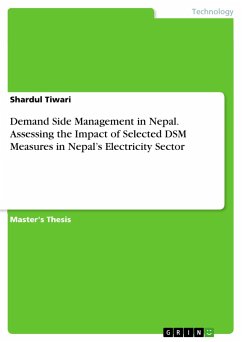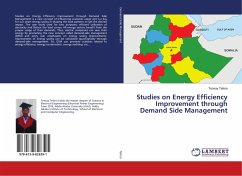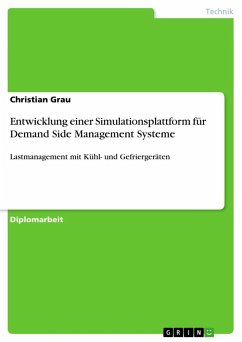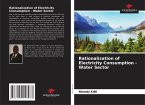Master's Thesis from the year 2016 in the subject Engineering - Power Engineering, grade: 1.3, Brandenburg Technical University Cottbus, course: Power System Economcs, language: English, abstract: The present paper gives a detailed analysis of the electricity market in Nepal and estimates the potential of DSM in the country for two sectors - the domestic and industrial sector. The work will involve merit rating and cost benefit analysis of the measures with the help of Conservation Supply Curves. It determines the economic achievable energy savings of different measures like power factor correction, efficient lighting, time of day tariffs etc. through DSM interventions. Recommendations from this study will provide insight and data for utility and energy experts, as well as policy makers, in terms of electrical energy that could be saved through DSM interventions. Additionally, the outcomes are relevant for similar cases of countries and regions of emerging and regulated electricity markets with comparable challenges of energy shortages. The electricity sector in Nepal, a slowly rising economy, can be classified as a small electricity system, facing a wide variety of challenges today, like power deficit with an average of 12 hours of load shedding every day throughout the year. Nepal's vested interest lies in building a reliable electricity surplus network, to realise its vision of graduating from the category of least developed countries (LDC). One approach which the country's utility has missed so far to make its network reliable is demand side management (DSM). DSM in Nepal is in a dismal state with almost no activity carried out by Nepal electricity authority, the government owned utility. The technical & economic potential of end use energy efficiency in Nepal is huge and is yet to be realized. DSM and end use energy efficiency can have a significant impact on energy savings and bringing down the peak demand.
Hinweis: Dieser Artikel kann nur an eine deutsche Lieferadresse ausgeliefert werden.
Hinweis: Dieser Artikel kann nur an eine deutsche Lieferadresse ausgeliefert werden.








